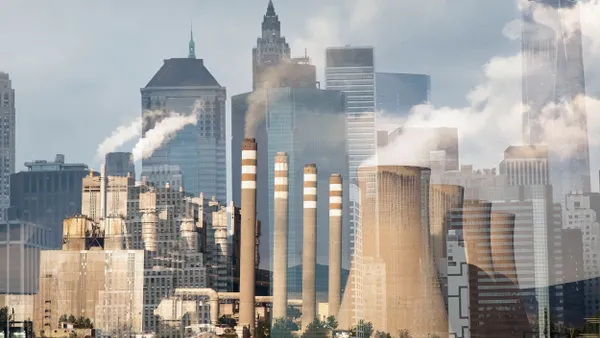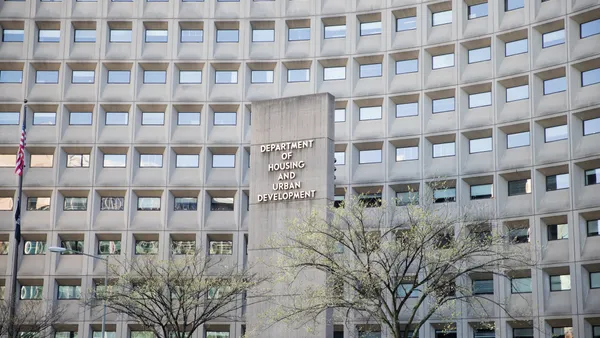Dive Brief:
- The National Park City Foundation confirmed London as its first National Park City, aiming to make the city greener, healthier and wilder. The initiative aims to improve the natural environment and wildlife, and encourage citizens to engage with and benefit from these assets.
- Mayor Sadiq Khan joined other individuals and organizations in showing a commitment to the initiative by signing the London National Park City Charter. The National Park City Foundation also partnered with World Urban Parks, the International Union for the Conservation of Nature (IUCN), Salzburg Global Conference and their networks to create an international charter that sets a vision for how other global cities can follow London's lead. "This is what cities will aspire to when they set off on the path towards joining the National Park City family," Tim Webb, National Park City Foundation trustee, told Smart Cities Dive.
- The organization aims to have 25 cities on board by 2025, "but would be delighted if we went over that target," Webb said.
Dive Insight:
The name of this initiative leads some people to believe the participating cities will officially be designated national parks, but that is not the case. The movement is intended to improve urban environments by adding green spaces and qualities that make cities more park-like, thus improving citizens' health and well-being.
Proximity played a part in London becoming the original National Park City, with many of the initiative's organizers residing there, Webb said. Glasgow, Scotland and Newcastle upon Tyne, England both are campaigning to become the next National Park City in the UK. Other cities are encouraged to join the movement.
London is well-positioned to be a National Park City because it has a notable amount of green space, waterways and trees, making it more park-like than many urban areas. The city charter provides a long-term vision with principles to further expand these characteristics. And as noted by the BBC, London is a less dense city than others such as Paris or New York, providing ample opportunities for green space expansion.
Much research points to urban greening as a way to improve public health and well-being. Green spaces provide areas for people to exercise, which improves physical and mental health, and can counteract urban heat island effects. Just being in a green environment provides an aesthetic that is shown to improve humans' mental states compared with consistently being in a concrete jungle. Louisville, KY launched a study in 2017 to understand the connection between green space and human health.
Trees are beneficial for humans as well, acting like pollution sponges and releasing oxygen as part of their respiration process. The benefits of trees have a number of U.S. cities, including Nashville, TN, reexamining their canopies and finding ways to prevent tree loss.
Urban green spaces also can have a direct effect on health in the form of nutritious foods. One of the points in London's charter is to encourage locally grown food and responsible consumption. The expanding popularity of urban food forests — where citizens harvest fruits, vegetables, nuts and herbs for free — in the United States goes along with that concept.
Broadening and accelerating the pursuit of these and other greening concepts, such as green roofs, could land U.S. cities among the global ones seeking National Park City status.











